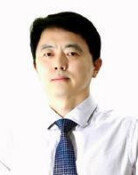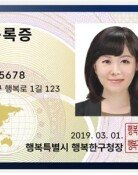President Yoon shoud not skip 2025 budget speech
President Yoon shoud not skip 2025 budget speech
Posted October. 31, 2024 07:59,
Updated October. 31, 2024 07:59
President Yoon Suk Yeol may forgo delivering South Korea’s budget speech for 2025, initially scheduled for next Monday, leaving the responsibility to Prime Minister Han Deok-soo. If confirmed, this would mark the first time in 11 years that the president has not directly addressed the National Assembly on the administration’s budget, which is set at 677 trillion won for 2025. The Presidential Office has not provided a reason for the possible absence, responding only with “Nothing is decided,” despite the speech being days away.
Since its introduction in 1987 following constitutional reform, the administration policy speech has served as a direct line from the president to the National Assembly, explaining the budget proposal for the upcoming year ahead of parliamentary deliberations. While presidents in the past sometimes opted to deliver the speech only during their first year in office, the convention has solidified over the last decade, with every president since Park Geun-hye addressing the National Assembly annually. President Yoon himself has attended the address twice in a row.
Insiders at the Presidential Office suggest that opposition protests—such as calls for impeachment or picketed demonstrations—might be behind Yoon’s potential absence. However, many argue that it would be a mistake for the president to skip this established address. During times of intense party conflict in the past, both ruling and opposition parties reached a “gentlemen’s agreement” to minimize disruptions, and presidents maintained the tradition of addressing the assembly. Such speeches have sometimes been followed by a luncheon with leaders of both parties to foster communication.
The importance of the administration policy speech goes beyond budgetary matters; it is a rare opportunity for the president to communicate directly with the people about pressing issues. With critical topics on the table, such as North Korea-Russia military cooperation and the ongoing healthcare crisis, the president’s presence is seen as vital. The public has a right to hear the government’s stance firsthand, and the president must explain and, when necessary, work to persuade the opposition.
President Yoon’s absence in the opening session of the 22nd National Assembly in September—another first since 1987—drew criticism, with Presidential Chief of Staff Jeong Jin-seok later defending the decision, saying he “cannot advise the president to go to the National Assembly until the National Assembly regains its reason.” While many agree the National Assembly should function more effectively, the president’s role is to foster cooperation with lawmakers and engage with them directly. The opposition party should also refrain from excessively harshly criticizing the head of the state. To maintain public confidence and uphold democratic traditions, the convention of the president addressing the National Assembly, engaging with the legislative leadership, and discussing the state agenda should persist regardless of political challenges.






